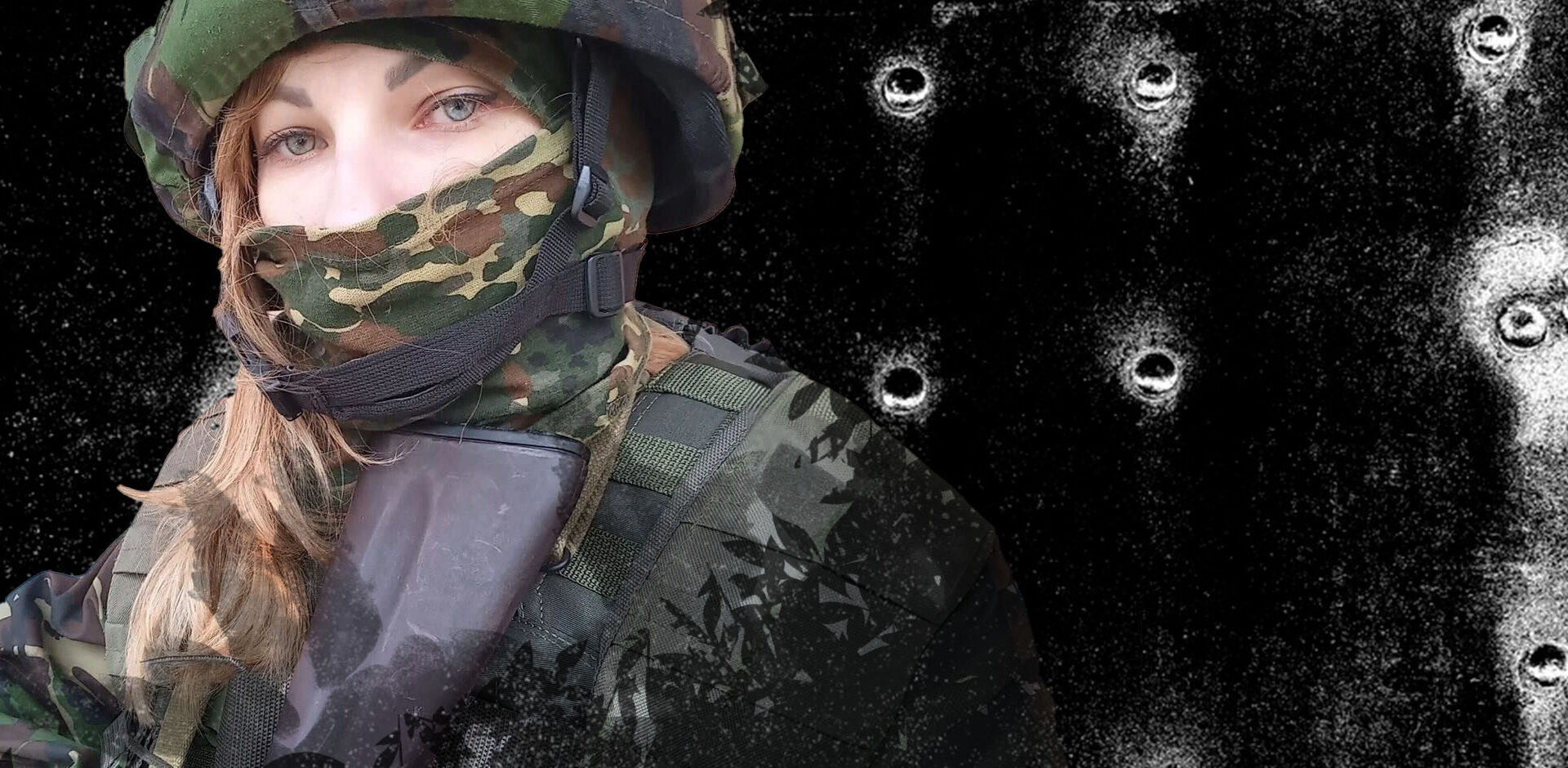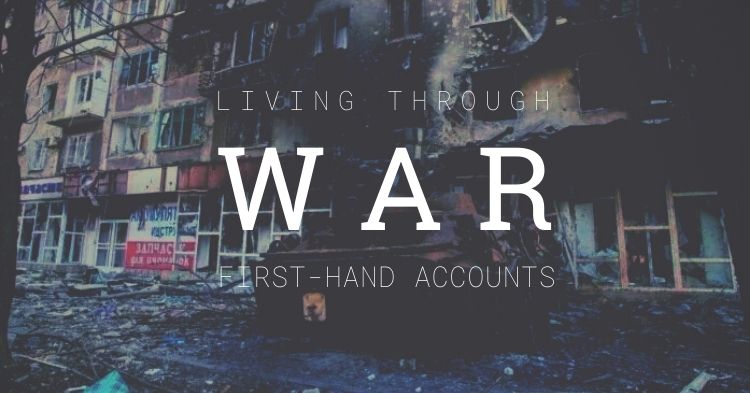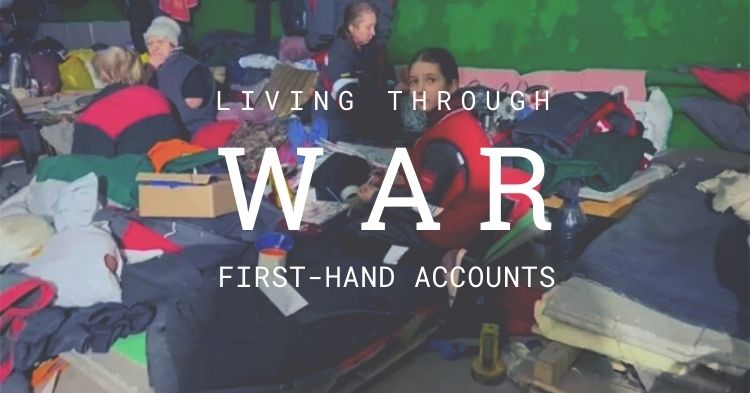The scars of war are not always visible. Ukrainians who have gone through captivity, torture, occupation, or the death of their loved ones at the hands of the Russians, carry an invisible burden that could break them.
We tell the stories of three women who overcame their loss and, despite their pain, became a source of strength for themselves and the people around them.
The women participated in the Recovery during the War program, which gathers groups of women and their kids for three weeks at a rehabilitation center in western Ukraine. There, they work with psychologists and art therapists and can feel a sense of belonging while being surrounded by women who might have had similar traumatic war experiences.
Our first story is that of Yulia, who spent four months in Russian captivity, cramped in a tiny cell with 30 other women and going through daily interrogations.
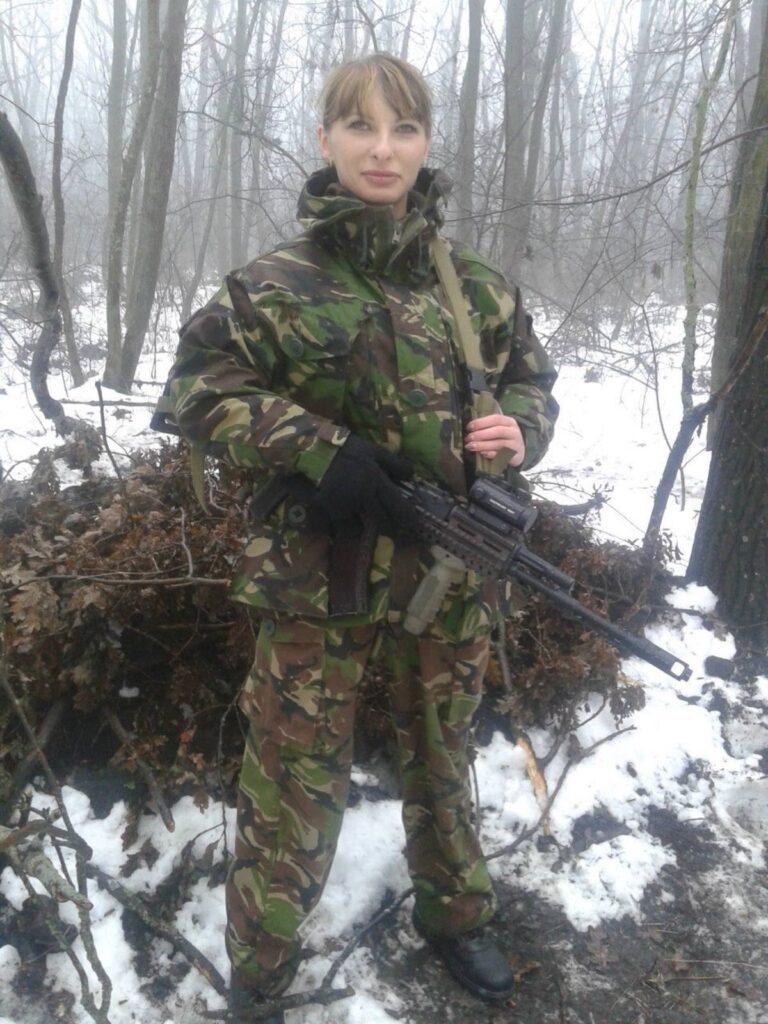
Yulia met the full-scale war in Mariupol
When the first shelling started at 4 a.m. on 24 February 2022, I decided to end my maternity leave and return to the military service. That morning, my mother came to me, and I took her and my four-year-old daughter to her friend. I, on the other hand, went to defend Mariupol.
I had a security brigade under my command, so I expected that my task would be to guard a military commissariat while it was registering those who wanted to defend the city voluntarily.
But on 25 February, the military commissariat received an order from Ukrainian authorities to evacuate. The prognosis seemed dim already. I stayed with the Territorial Defense of Mariupol as a volunteer, even though I could still evacuate.
I didn’t know anything about my child for about a month because I lost contact with my mother. This was probably the most difficult time for me because I often heard the news that children were killed somewhere, and I didn’t know if my child was among the dead.
Later, I found out that my daughter and her grandma were hiding from Russian shelling in the basement. There was hardly anything to eat; they drank melted snow. When they were evacuated at the end of March 2022, my daughter looked very thin and exhausted. She was only four years old at that time.
Ukrainians withdraw to Azovstal
As many might already know about Mariupol, Russians quickly surrounded the city from all sides, and Ukrainians started retreating to Azovstal, a massive metallurgical facility in the city.
My comrades brought me there to a hospital because I was wounded. All I could do was wait and see what would happen next. I spent a month and a half at Azovstal. Then, on 17 May, Russians took us into captivity.
When we were fighting for Mariupol at the beginning of the invasion, I saw all this horror around me, how people died, burned alive, all these deaths every day, but hope remained glimmering in me anyway, that this was not in vain.
However, when I got to Azovstal, wounded and exhausted, despair engulfed me. I didn’t know what would happen next; nothing seemed to be the same as before. I had already said goodbye to all my loved ones because I didn’t believe that I would get out of there alive.
One Ukrainian brigade commander at Azovstal said that women would be exchanged and returned to Ukraine in two to four weeks, while men were promised to be exchanged within four months.
However, the reality turned out to be completely different. I spent four months in Russian captivity, and some of the women I knew there are still suffering in Russian prisons, already for the third year.
When we were leaving Azovstal and being taken prisoner, a black curtain appeared before my eyes, and it stayed with me for four months of captivity, as if I wasn’t fully coming to my senses, as if I was living somewhere else and not in my body.
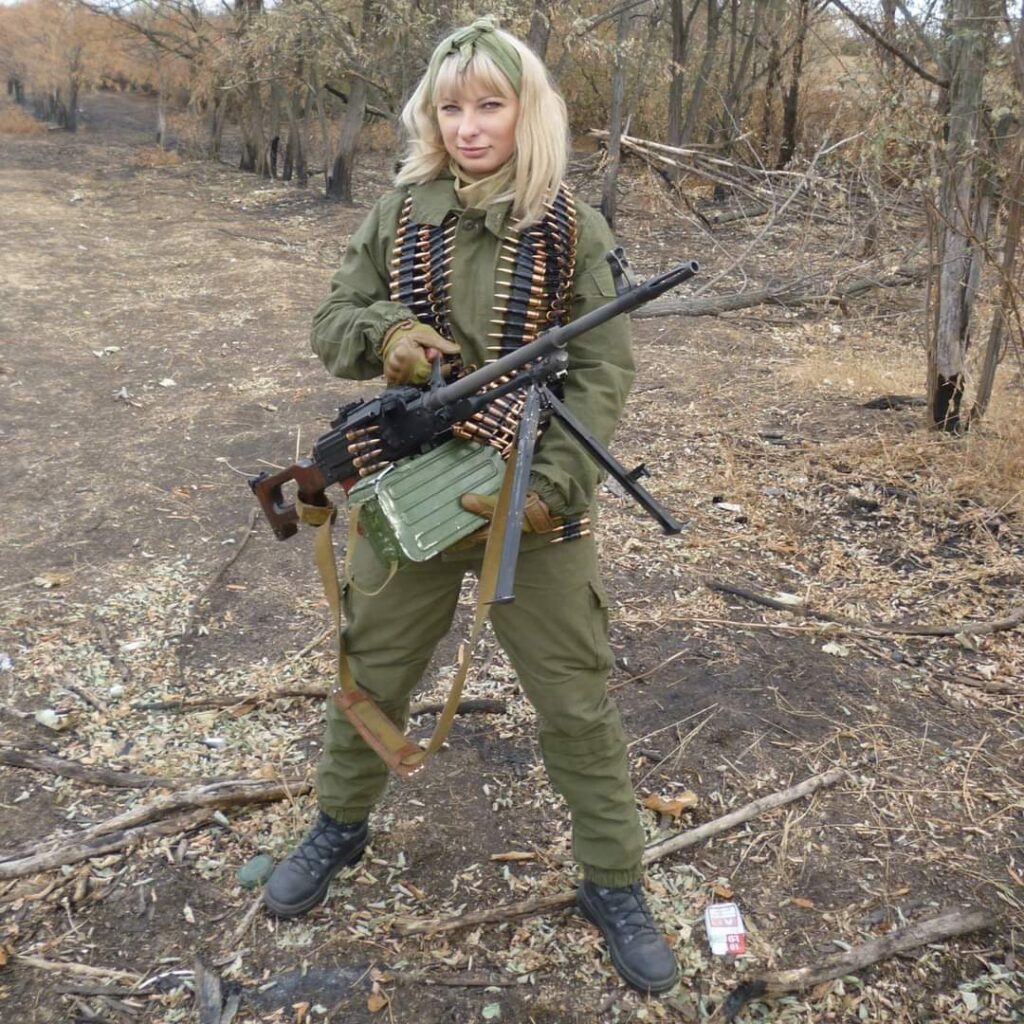
Ukrainian prisoners of war face inhuman conditions in Olenivka
From Azovstal, Russians took us to a prison in Olenivka. That’s where, in July 2022, Russians killed dozens of Ukrainian prisoners of war from Mariupol. They blew up a building to cover up the torture and murders their people committed.
Russians stuffed us into small two-person or four-person cells, where I lived with 30 other women. The conditions were terrible: we slept right on the cement, obviously without pillows and blankets or even a mattress, and there was almost no food.
In captivity, I didn’t know whether I would live to see the next day, whether Russians would torture me or not, because I was interrogated by the Russian Federal Security Service (FSB) almost every day. This meant constant intimidation and fear that they would do all those horrible things they promised. I felt total uncertainty.
FSB wanted me to confess that Ukrainian soldiers were shooting civilians in Mariupol, that they were looting and torturing someone. They wanted me to say that I saw these crimes with my own eyes, but I didn’t see any of it. The Russian goal was to get these false confessions out of Ukrainians by any means.
Russia wanted to get false confessions out of captive Ukrainian soldiers by any means. Men were thrashed until they were barely alive and would sign anything.
Luckily, they didn’t beat me or other women I knew. It was different for men, though, as Russians thrashed them so much that they were barely alive and would sign any confession, even if it was total nonsense.
Once, they brought me for interrogation, closed the doors behind me, and laid out tools in front of me. The guard’s voice was chillingly matter-of-fact as he announced, “Undress, now we will torture you.” That was the scariest moment for me. When I started to undress, they, for some reason, said, “That’s enough.” This was their way of torturing me mentally.
When I was brought for an exchange and heard the Ukrainian language for the first time in four months, only then did I feel relief; that black curtain fell off my eyes, and I finally came to my senses.
Yulia returns from Russian captivity
Returning to Ukraine was probably the most exciting moment of my life. We crossed the border from the Belarusian side, and I heard “Glory to Ukraine” and cried for a long time afterward. I was brought to a hospital for treatment and could finally see my family.
During the first month, I simply enjoyed life, especially food. I ate a lot, three portions sometimes, because I hadn’t eaten for almost all these months. I savored every piece as if it was the most delicious meal I had ever tried.
I rejoiced in the sun every day, walking calmly, because we spent four months in a semi-reclining position. In the cell, there was only a tiny window from which I could see Russian flags, so I didn’t really want to look out. That was another mental torture.
As this period of dissolving myself in freedom subsided, the memories of my comrades’ deaths, of captivity, and of time at Azovstal slowly started to resurface.
I went through a lot of rehabilitation and psychological treatments, and it really helped me to get back in line faster. But honestly, I couldn’t get involved in civilian life again.
I have been serving in the Ukrainian army since 2014, then went on maternity leave, which lasted till 2022, when the full-scale invasion started. Even back then, I understood that I would not be able to work somewhere in the civilian sphere.
People don’t quite grasp all the horror happening in the frontline cities, let alone on the frontlines. I try to explain to others what happened in Mariupol and that no Ukrainian city is immune to this same fate. Not everyone listens.
People need to be reminded of the heroism that Ukrainian soldiers show every day. Thanks to the Ukrainian military, civilians in most cities have the opportunity to live in relative peace, sleeping, working, and relaxing.
Psychologists have helped but cannot heal completely
I decided to go to war again. Mom held me back, and my husband held me back, but soon, I’ll be joining the Ukrainian Armed Forces again.
My daughter is now six years old. She knows I am leaving to serve soon, and she “lets me go,” as she says. Honestly, I don’t know how she will actually feel about me not being around her for a long time again. When I returned after four months of Russian captivity, she was terrified of losing me and held me tightly.
Of course, after all these experiences, I became different. I became more emotional and vulnerable. I take some people’s statements and actions closer to my heart. Everything that happened did not pass without leaving a trace on me. Working with psychologists can help ease the pain a little, but I cannot fully erase my memories. I still remember everything forever.
Everyone who returns from Russian captivity is a person with disabilities – both physically and mentally. Many cannot return from that hell that they went through.
A person who experienced captivity has an entirely different view of the world and spiritual life. Everyone who returns from Russian captivity is a person with disabilities – both physically and mentally. Physically, it is because of the injuries, torture, and hunger that leaves long-lasting traces. And morally because many cannot return from that hell they went through. They might return physically, but psychologically, they find it hard or impossible.
The demands for help with mental health never end
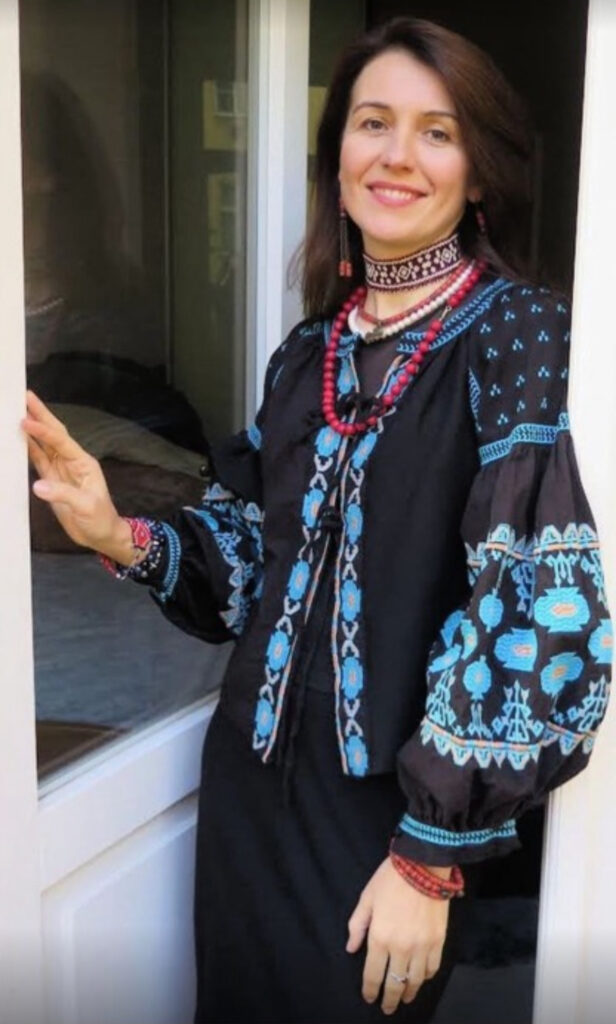
As the Russian invasion of Ukraine grinds on, casualties and tragedy continually escalate, posing a long-term, existential threat to the country.
Psychologist Lyudmila Bilousova believes Ukrainian women affected by the war are at risk of losing the mental stability needed for raising children. Her thoughts follow below.
Mental health rehabilitation program for Ukrainian women and kids
Mental and emotional stability is crucial for Ukrainian women because they are raising the future generations of the country. Their children could be the ones who will restore Ukraine. For me, helping these women recover their abilities is a fundamental task as a psychologist.
I work with women and children affected by the war at a psychological rehabilitation program called Recovery during the War, organized by VAAD of Ukraine, the Association of Jewish public organizations and communities of Ukraine.
Women go there to try to cope with the loss of their loved ones and homes, or when they’re trying to cope with someone from their family who is missing or is being held in Russian captivity.
I have noticed people experiencing a lot of emotional instability, aggression, sleep disturbances, eating disorders, and, of course, anxiety, depression, and apathy.
I think the war has exacerbated all these conditions. They might have had struggles with their mental health before Russia’s full-scale invasion, but it all worsened afterward with so much death and destruction around.
Hearing loud sounds, even thunder, can be a trigger for lots of Ukrainians and arouse anxiety in them.
I also hear women complaining about how their imagination and memory suffer greatly, and this mainly affects their ability to perform well at work, as they need focus and attention in most jobs. Now, it takes more effort to accomplish things that were easy for them earlier.
Many women also mention great uncertainty about the future, so our rehabilitation program has a schedule that creates some sense of predictability for them.
My main task is to teach them self-regulation skills and help them develop emotional intelligence, as many, unfortunately, cannot identify and name their emotions clearly. In my opinion, this partly comes from the Soviet upbringing, as we call it, where “I’m at the bottom of the heap” was the life motto of most, especially women who were expected to take care of their kids, a husband, and a household, leaving care for themselves somewhere at the end of the list, if existent at all.
By the end of the three-week “shift” at our rehabilitation program, women start realizing that we are trying to help them. They open up more and understand how useful it is for their mental health.
We have had almost 100 “shifts” of women coming to rehabilitation at our center for three weeks since May 2022. However, it is still a drop in the ocean. Although we work nonstop, shifts are coming one after another. Thousands of people are still waiting and needing our program. The number of Ukrainians affected badly by the war only rises.
Related:
- Is Putin mentally ill? Would he press the nuclear button? Interview with top Ukrainian psychoanalyst
- “One cup of water per day for 8 people”: Deaths of Ukrainian POWs in Russian captivity rise, human rights group says
- Ukraine says women in Russian captivity subjected to physical and psychological abuse
- Some 403 Ukrainian women in Russian captivity, including civilians




